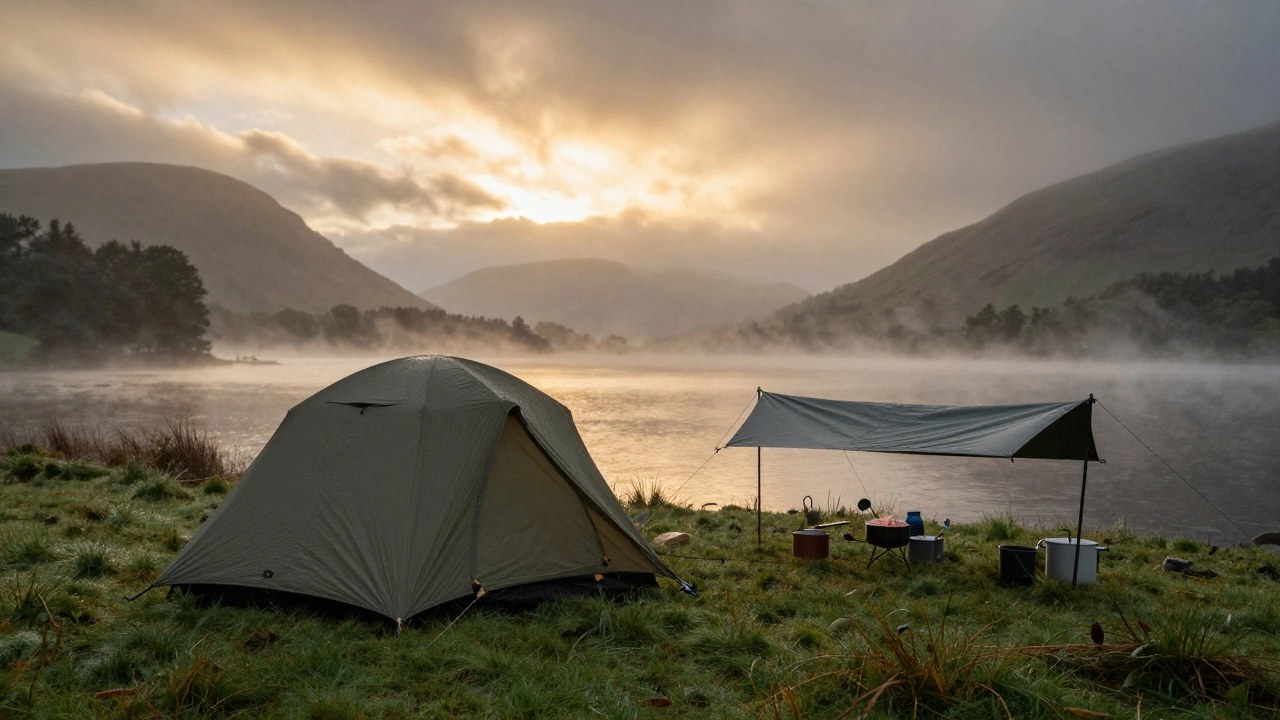UK Camping Rules: The Basics Every Camper Should Know
If you love hitting the road in a motorhome or setting up a tent in the countryside, you’ve probably wondered what’s legal and what isn’t. The UK has a patchwork of laws, local bylaws, and common‑sense practices that can feel confusing. This guide breaks down the most important rules so you can camp confidently, avoid fines, and enjoy a stress‑free adventure.
First off, not all land in the UK is open for camping. Public parks, most private fields, and many nature reserves say ‘no camping’ on their signs. However, you do have legal rights in certain places – like designated campgrounds, some caravan sites, and a few wild‑camping hotspots. The key is to always check local signage and, when in doubt, ask the landowner.
Wild Camping and Stealth Camping
Wild camping is allowed in Scotland thanks to the “right to roam” law, but England, Wales, and Northern Ireland are stricter. In those parts, you can only camp on land where you have permission, or you can practice stealth camping – staying low‑key on public land for one night, then moving on. Stealth camping isn’t illegal per se, but if you’re caught breaking a local bylaw you could be asked to leave or even fined. The safest approach is to pick spots away from roads, keep a low profile, and leave no trace.
When you set up, use a small, low‑impact tent or a pop‑up camper. Avoid bonfires, keep noise down, and pack out everything you bring in. This not only respects the land but also reduces the chance of a ranger or police officer stopping you.
Boondocking and Motorhome Parking
Boondocking – sleeping in your motorhome off‑grid – is popular, but you still need to follow local rules. Many towns allow overnight parking on street, but some have resident‑only zones or time limits. Supermarkets, service stations, and some large retailers (like certain Tesco or Sainsbury’s stores) often let you stay for a few hours, but you should always ask the manager first.
Walmart‑style parking lots in the US are a common boondocking spot; in the UK, big retail parks can work similarly. Just make sure you’re not blocking traffic, keep the lights off, and respect any posted signs. If you’re unsure, use apps that show legal overnight spots or check the local council’s website.
Another easy option is to use official motorhome sites, many of which are free or low‑cost. These sites provide basic facilities like waste disposal and water hookups, making your stay cleaner and more comfortable.
Remember, staying longer than a night in one spot without permission can be seen as an illegal encampment. Move on after a reasonable period – a night or two at most – and you’ll stay clear of trouble.
Finally, always carry proof of identity and your vehicle registration. If a police officer stops you, being able to show you’re a responsible camper can make a big difference.
With these basics in mind, you can explore the UK’s beautiful coastlines, forests, and moorlands without worrying about penalties. Stick to designated sites when you can, keep a low profile for stealth stays, and respect local rules for boondocking. Happy camping!
-
 VIEW POST
VIEW POSTIs England Good for Camping? Real Talk on Sites, Weather, and Rules
Dec, 4 2025|0 CommentsEngland offers surprisingly good camping with diverse sites, from wild spots in Dartmoor to family-friendly parks. Know the rules, pack for rain, and you'll find quiet beauty in its landscapes. -
 VIEW POST
VIEW POSTIs It Legal to Sleep in Your Car in the UK: Camping Rules You Need to Know
Mar, 23 2025|0 CommentsSleeping in your car might seem like a simple solution when you're exploring the UK, but the legalities can be tricky. Depending on where you park, the rules can vary. In some areas, it's perfectly legal, while others might hand you a fine. It's important to know the local regulations and respect private property to avoid any trouble. This article explores everything you need to know about catching some Z's in the comfort of your car while touring the UK.